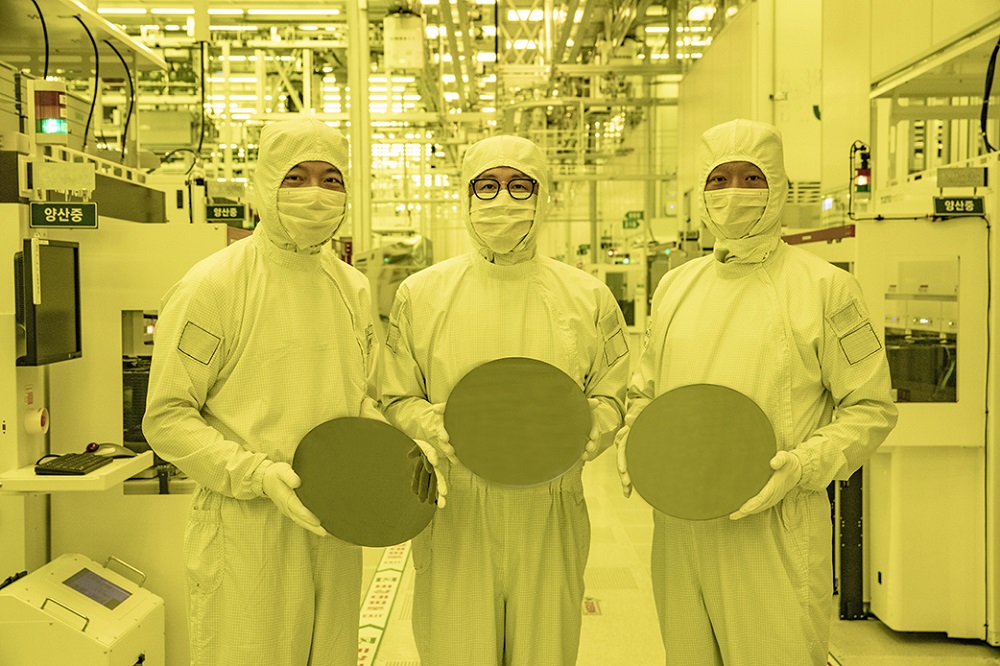

(From left) Michael Jeong, Corporate Vice President; Ja-Hum Ku, Corporate Executive Vice President; and Sang Bom Kang, Corporate Vice President at Samsung Foundry Business are holding up 3nm wafers at the production line of Samsung Electronics Hwaseong Campus. Image credit: Samsung
The US and Japan have agreed to set up a joint centre for next-generation 2-nanometre semiconductors this year as part of a broader partnership aimed at ensuring a stable supply of microchips.
Japanese trade minister Koichi Hagiuda announced the deal to mark the beginning of a high-level economic dialogue between the two countries that began on Friday, following an earlier statement in May that vowed to improve supply chain resiliency.
The announcement comes amidst an ongoing chip supply shortage that has affected everything from car makers to makers of consumer electronics and business computers.
The US last week passed the $52 billion (£43bn) Chips Act in response to the crisis, providing massive subsidies to encourage chipmakers to build domestic manufacturing capacity.
Similar plans are underway in the EU, which wants to produce 20 percent of the world’s cutting-edge semiconductors by the end of the decadel
The vast majority of advanced computer chips under 10 nanometres are currently produced in Taiwan by the likes of contract chipmaker TSMC.
“Semiconductors are the linchpin of our economic and national security, especially with respect to advanced semiconductors,” said US commerce secretary Gina Raimondo.
Hagiuda said Japan would “quickly move to action” on next-generation semiconductor research and said the countries would launch a “new R&D organisation” to establish a secure source of the components.
He added that the hub would be open to the participation of other “like-minded” countries.
Japanese newspaper Nikkei Shimbun reported the organisation would be set up in Japan by the end of this year for research into 2-nanometre chips and would include a prototype production line.
It is to begin producing chips by 2025, the paper said.
US secretary of state Antony Blinken took the opportunity of the conference to condemn the “coercive and retaliatory economic practices of the People’s Republic of China” which he said “force countries into choices that compromise their security, their intellectual property, their economic independence”.
Japanese foreign minister Yoshimasa Hayashi said Russia’s invasion of Ukraine was a serious challenge to the international order.
In an apparent reference to China, which was not directly named, he also alluded to efforts “to use economic influence unfairly and opaquely to realise… strategic interests and to modify the existing international order”.
Pioneering robotaxi service from Alphabet's Waymo to go live in Washington DC next year, as…
Dozens of Chinese firms added to US export blacklist, in order to hamper Beijing's AI…
Chinese rival BYD overtakes global revenues of Elon Musk's Tesla, as record number of Tesla…
Messaging app Signal in the headlines after a journalist was invited to a top secret…
OpenAI chief operating officer Brad Lightcap to oversee international expansion as company consolidates lead in…
Chinese researchers publish details on device that could wreak havoc on undersea communications cables in…